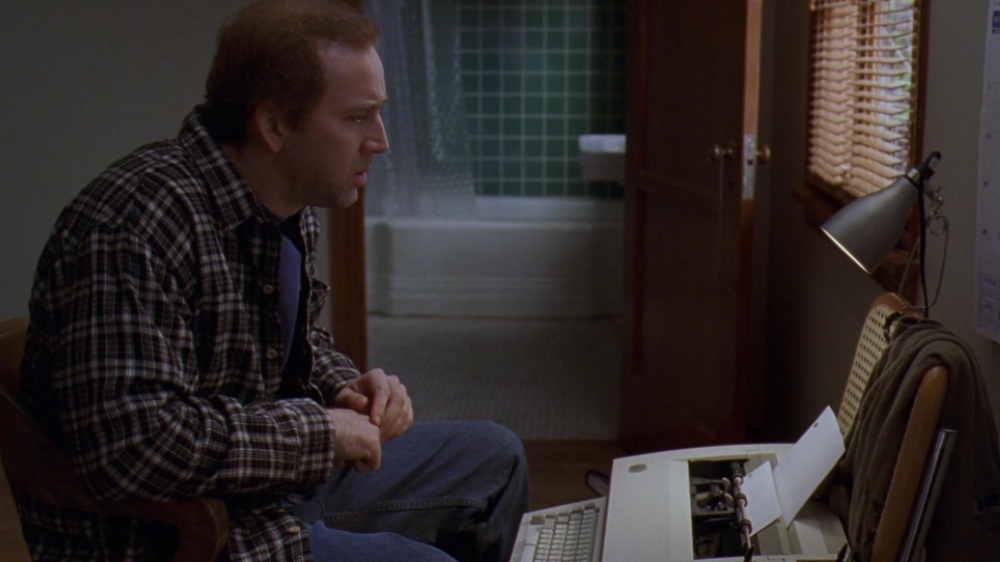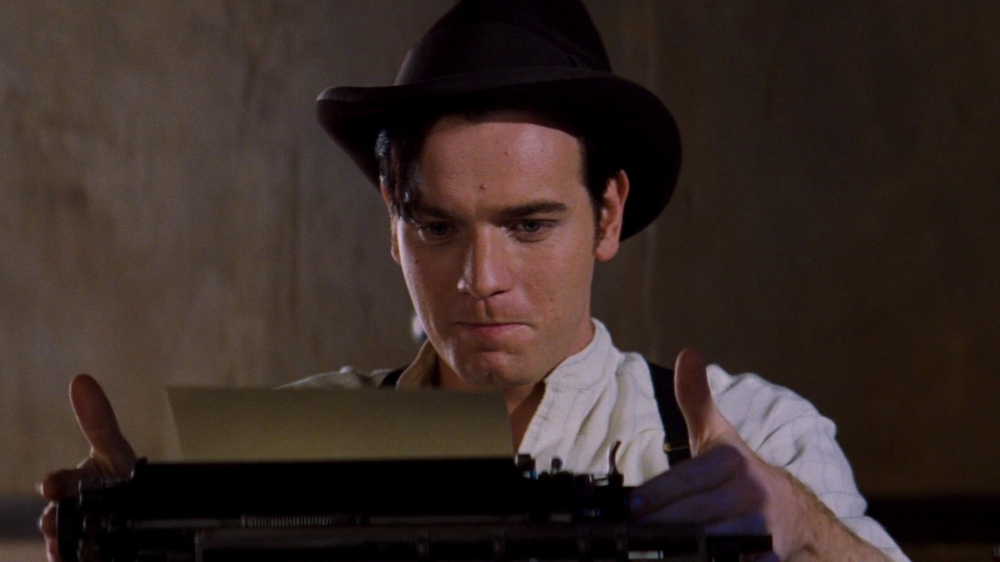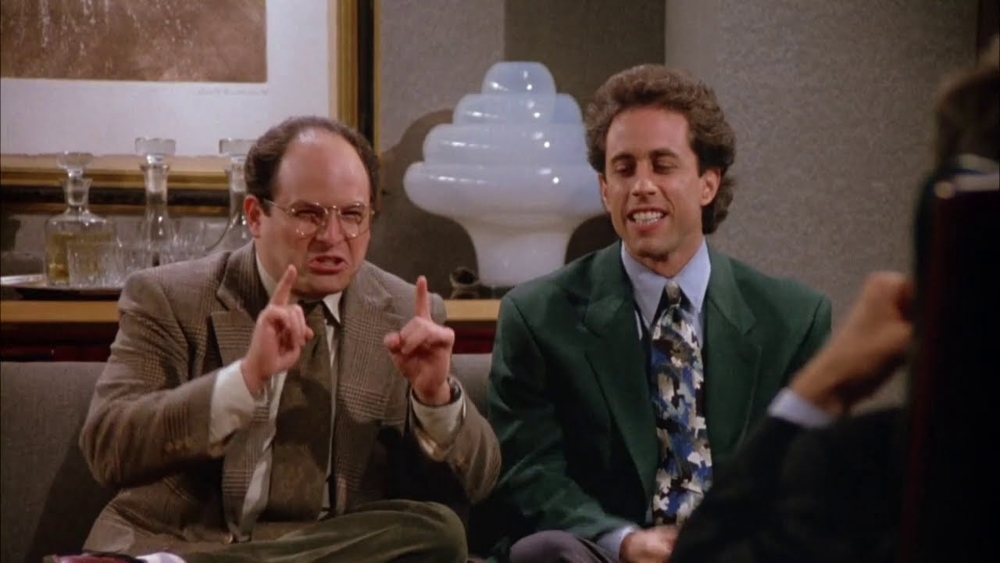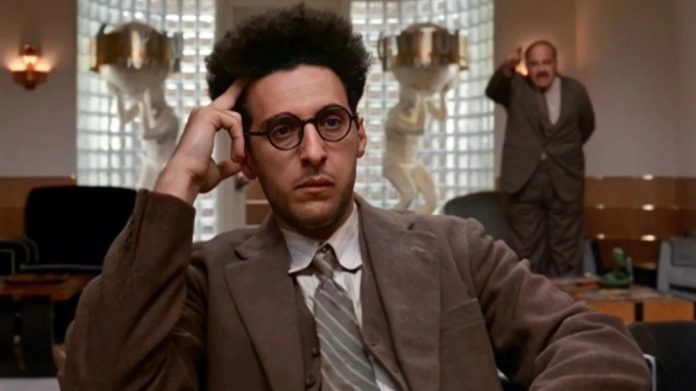I’ve been a writer for a long time. My whole life, really. Started telling stories when I was a kid, became a professional journalist as a teenager while I also wrote fiction, became a screenwriter in my 20s, and have made my living in one form or another hacking away at my computer for three decades, minus a few dark years in the middle there when things were dry and I made drinks to pay my rent. Even then, the writing never stopped, people just briefly stopped paying me for it.
So you would think, after all this time, I would be used to people not respecting what I do. Invariably, when people ask me my profession and I tell them, they want to know how I actually make money doing it. It’s sort of astonishing, really, that they think they have a right to demand this information from me. That I somehow owe them something. The last time it happened was just a couple months ago, when I was at a wedding and some relative of my wife’s whom I hadn’t previously met asked the question.
“Can you make a living doing that?” He asked, maybe thinking this was the polite way to broach the subject. I looked at him and, rather than answering — which I used to make the mistake of doing — I asked what he does. He told me he’s an attorney. “Can you make a living doing that?” I asked, deadpan. He was not immediately sure if I was kidding or not. I just stared at him. After a moment, he sort of smiled and said, “I make a living.”
“Well,” I gave him a sort of smile in return, “so do I.”
The thing of it is, writing is a profession people don’t understand because it’s something everyone does. Write a note, an email, a letter, just about everyone writes something every single day. Therefore it’s hard for them to compute that this is a way to actually make money. Really? This? Writing? Okay. If you say so.
They think this despite the fact that just about every single piece of filmed or theatrical entertainment they consume and all of their news content comes from the written word, and I’m not even talking about literature or comic books. Even things that aren’t “written” in the conventional sense, like a reality TV show or a documentary, have to begin with some kind of writing. A proposal, a request, something.

People don’t tend to take that into account. They think that actors make up their words, if they even give it that much thought. They think these things just come into being. Stories find a way to exist. The news they receive just happens to arrive at their doorstep in one form or another, the human factor not considered. They take writers for granted because … well, I’ve already told you why.
And yet, even with all this in mind, I continue to be baffled by the way so many people in this industry also dismiss the contributions of the writer. It’s almost as if they’re offended by the notion of actually having to pay the sad little people who spend their days hunched over their keyboards. How dare these worthless scribes demand to be recognized remuneratively for the work they do that puts money in the pockets of others? The nerve!
The existing WGA contract with the Association of Motion Picture & Television Producers, or AMPTP, is expiring at the end of next month, so the negotiations for the next one recently began in earnest in Sherman Oaks. The big things that are at stake here are more pay and some genuine transparency from the streaming services. These would seem to be simple concepts, but of course, it’s never really as easy as it looks.
For one thing, the rise in the number of streaming services has cut into the overall profits of the ones that came first. Netflix, for instance, used to be king of the hill, but there’s so much more competition than there used to be, and Netflix has been falling so far behind in its production of high-quality content, that the mega deals it used to hand out like fliers on a boardwalk are a thing of the past. Even then, it was only a small handful of successful folks who were getting those, not the rank and file. Those poor saps were always getting stiffed, with shorter seasons and smaller rooms, and an inability to work on more than one project at once because of old rules in effect.
Investors want their investments to pay off, and the people and companies that own the streamers want more money coming out of them and no longer care as much about the number of subscribers signing up. The money spigot has, as far as writers are concerned, been shut off.

At the same time, budgets are higher than they’ve ever been, even adjusting for inflation. People are getting paid and the content being produced is not being done on a penny-pinching basis. On top of that, every management side in every similar negotiation since the beginning of time has claimed destitution, that offering anything above and beyond the bare minimum would bankrupt them and end the business altogether, and that any concession of any type will bring about the End of All Things.
So you’ll forgive me if I roll my eyes at the studios and streamers crying impoverishment in the way they always have. Investors complaining that the entertainment industry generates too much red ink? Well… I mean… when hasn’t it? The answer doesn’t seem to be, “Let’s change the way we operate,” it’s “let’s cut costs and stop paying people even as we still need their services.”
Part of the issue here is that writers used to get residuals based on the old model of how business was done. With streaming, though, that’s no longer the case. Just because a movie you wrote is climbing the charts doesn’t mean you’re going to get a bigger check next time, even though that’s exactly what it should mean. Any new deal not only has to include transparency, but it should also include some kind of pay-per-play feature wherein writers are rewarded for a title’s popularity.
There’s also the fact that the 22-episode season barely exists anymore, and reruns are a thing of the past. Shorter seasons shouldn’t mean less pay, and yet that’s pretty much how it’s playing out. Hollywood is making more TV than it ever has, but writers aren’t making enough money to survive, which is absolutely insane. Writer compensation has actually dropped over the course of this agreement, which is even crazier. Again, if you don’t pay the people creating your content, you ain’t getting no content, and then everyone’s screwed.
The DGA apparently reached out to the AMPTP last fall to try to clear the ground for a deal of its own, but what it considered a list of conditions for preliminary conversation was considered by the producers as key negotiating points, and the proffer was summarily dismissed. Were the directors trying to undercut a deal for the writers, or perhaps set the tone for any negotiations the WGA and SAG would eventually undertake with the studios? My instinct says the DGA might have been testing the waters to see what the AMPTP was most afraid of in this whole deal and it didn’t work. Of course, there’s no way for me to know that, but what is clear is that everyone involved fears a strike and would prefer there not be one, because then nobody is making money. Not even management.

It’s been 15 years since the last strike happened, and the notion that another might is a scary thought, especially with the precariousness of the entertainment industry’s current state. But what’s fascinating to me, and just about as baffling as the disrespect writers generally get, is that no one appears at all interested in reexamining how the business is being conducted. I mentioned it in passing a few paragraphs ago, but think about it. Rather than taking a look at the model itself, and perhaps reevaluating the way things are done, the answer is to cut costs and not pay the people who create your content. Not, by the way, to reduce the pay of the people in the executive suites, mind you, but the people whose work put them there in the first place.
Because sure. If something isn’t going the way you want, don’t change the way you do it. That would be too much work. Better to just do the easiest thing, even if it hurts you in the long run.
Nobody wants a strike. The idea that the WGA wants to burn the industry to the ground is ridiculous and more than a little insulting. The guild wants a living wage for its members and transparency in the AMPTP’s dealings, both of which are more than fair. The streamers and studios want to make money and continue to keep the wheels turning, and not have to give away the store, which is also fair.
There’s a middle ground here, as there always is. It’s just that it feels like that ground is a lot closer to the writers’ side than the studios’. Call me biased all you like, but the simple truth is that content doesn’t create itself, and when that content is seen by more people, the creators should reap the benefits. They should also be able to support themselves and their families in doing so.
Seems pretty simple to me, but what do I know? I’m just a writer.
 Neil Turitz is a journalist, essayist, author, and filmmaker who has worked in and written about Hollywood for more than 25 years, though he has never lived there. These days, he splits his time between New York City and the Berkshires. He’s not on Twitter, but you can find him on Instagram @6wordreviews.
Neil Turitz is a journalist, essayist, author, and filmmaker who has worked in and written about Hollywood for more than 25 years, though he has never lived there. These days, he splits his time between New York City and the Berkshires. He’s not on Twitter, but you can find him on Instagram @6wordreviews.
You can read a new installation of The Accidental Turitz every Wednesday, and all previous columns can be found here.



